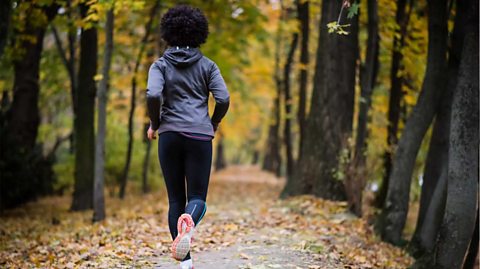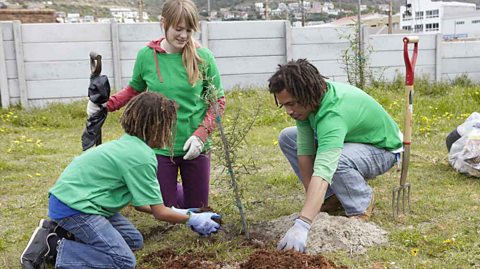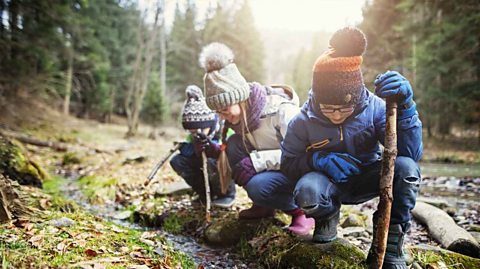As much as we love watching TV and playing video games, wouldnÔÇÖt you rather be frolicking in frost-covered fields with the wind in your hair? No?
Maybe not. But you have to admit thereÔÇÖs nothing like a walk in the fresh air to clear your mind and get that blood pumping. ItÔÇÖs called the great outdoors, after all.
WeÔÇÖre often told to ÔÇ£go and get some fresh airÔÇØ to feel better after an argument, a long day of revision, or a weekend spent on the sofa - but could spending time outside with nature benefit the planet too?

Out-of-doors
A national survey on people and nature by Natural England in 2018 (the most recent Monitor of Engagement with the Natural Environment Report), showed that more people than ever are spending time outdoors.
According to the report, the proportion of adults leaving their houses (shocking, we know), and visiting nature at least once a week increased from 54% in 2010 to 62% in 2018.
It was reported that health and exercise were the main ÔÇÿmotivationsÔÇÖ for spending time with nature - over half of all visits.
Stephen Buckley, Head of Information at Mind, explained why getting outside can be good for our mental health, as well as our physical health.
ÔÇ£The colours, sounds and smells of the outdoors stimulate our senses in a way that indoor environments usually donÔÇÖt. Getting into a relaxing outside space can provide a welcome distraction from any negative or intrusive thoughts, allows us to switch off from everyday pressures and help relieve stress,ÔÇØ he said.

A 'broken relationship'
But when it comes to the environment, itÔÇÖs not just about what nature can do for us.
In May 2019, the UK Parliament declared an environment and climate emergency, and climate change protests around the country have shown that public concern for the environment is high.
┤¾¤¾┤½├¢ Bitesize spoke to Miles Richardson, Professor of Human Factors and Nature Connectedness at the University of Derby. Professor Richardson explained how spending time with nature can be mutually beneficial for our own well-being, and for the natural environment.
According to Professor Richardson, the current climate and wildlife emergency shows that the existing relationship between people and the rest of nature is ÔÇ£brokenÔÇØ and ÔÇØnature connectednessÔÇØ he believes, is one way to combat this.


Reconnecting with nature
Nature connectedness is more than just spending time with nature. Professor Richardson describes it as ÔÇ£the strength of your feelings towards nature and whether you feel part of the wider natural world.ÔÇØ
He told Bitesize that being more connected to nature not only helps people ÔÇ£feel happy and good about themselvesÔÇØ, but can bring about ÔÇ£pro-nature behavioursÔÇØ.
These can be things like reducing your carbon footprint, recycling or conservation.


Turning over a new leaf
With winter well underway, itÔÇÖs hard to see how we can become more connected with nature when itÔÇÖs so cold and dark outside.
But Professor Richardson said there are small things we can do, even in the winter months, to start rebuilding a relationship with the natural world, and help ourselves along the way.
ÔÇ£Simply noticing the ÔÇÿgood things in natureÔÇÖ each day helps improve nature connectedness and mental health,ÔÇØ he said.
He recommended writing down three good things that you see in nature each day. This could be a fallen leaf you notice on your way to school, or the pattern on a birdÔÇÖs feathers.
Tweet us @┤¾¤¾┤½├¢Bitesize to tell us what good things you see in nature.

We spoke to Dr Sylvia Knight of the Royal Meteorologist Society to answer six very important cold weather questions.

Six National Trust sites with incredible stories to tell
The National Trust is celebrating its 125th anniversary this year, so we've looked at some of its fascinating sites.

Five things to learn in 2020
What better time to start learning a new skill than in the new year?
